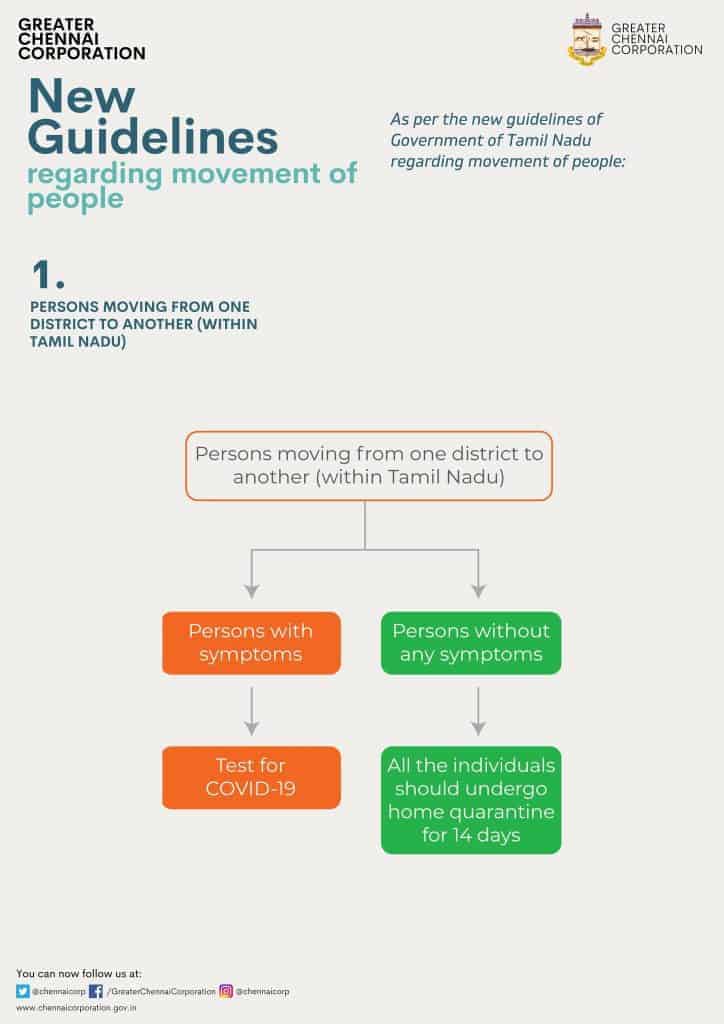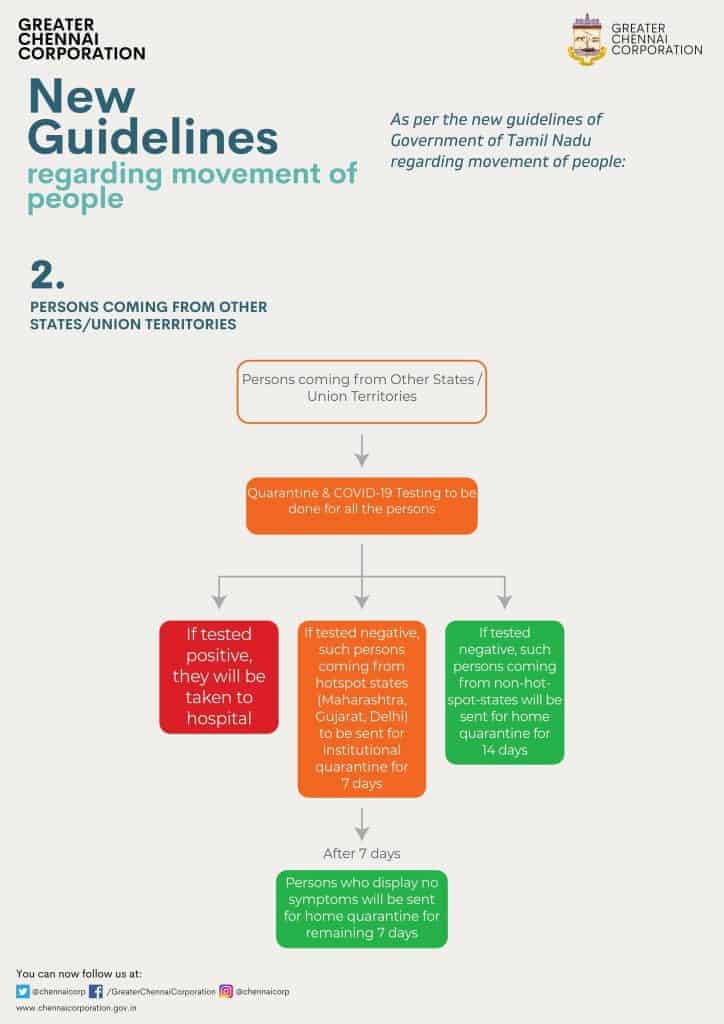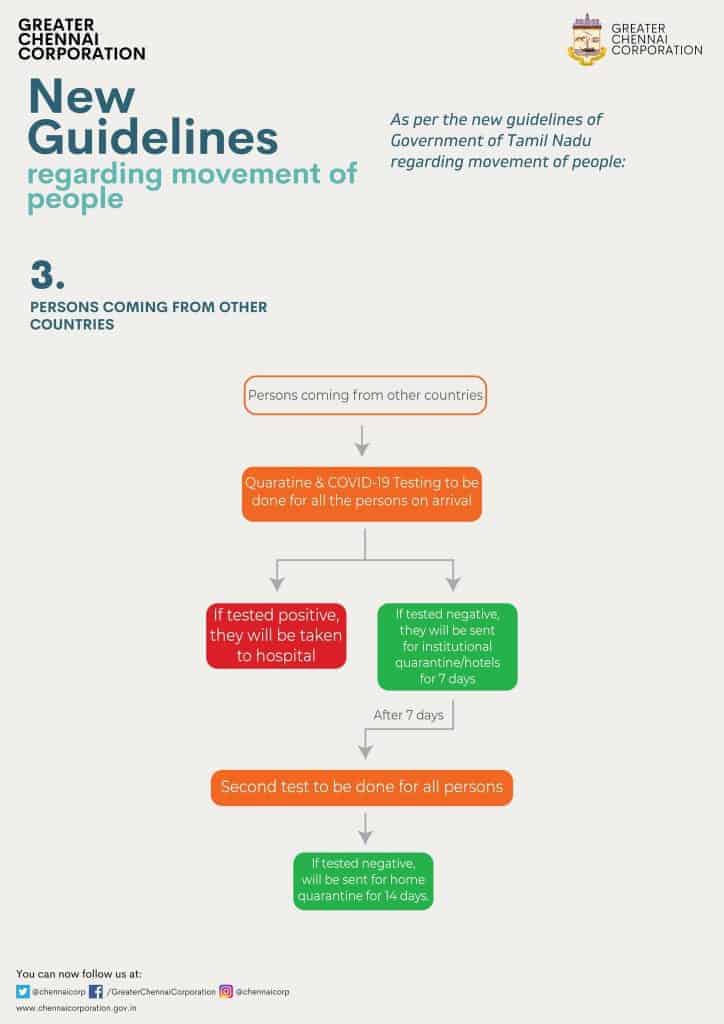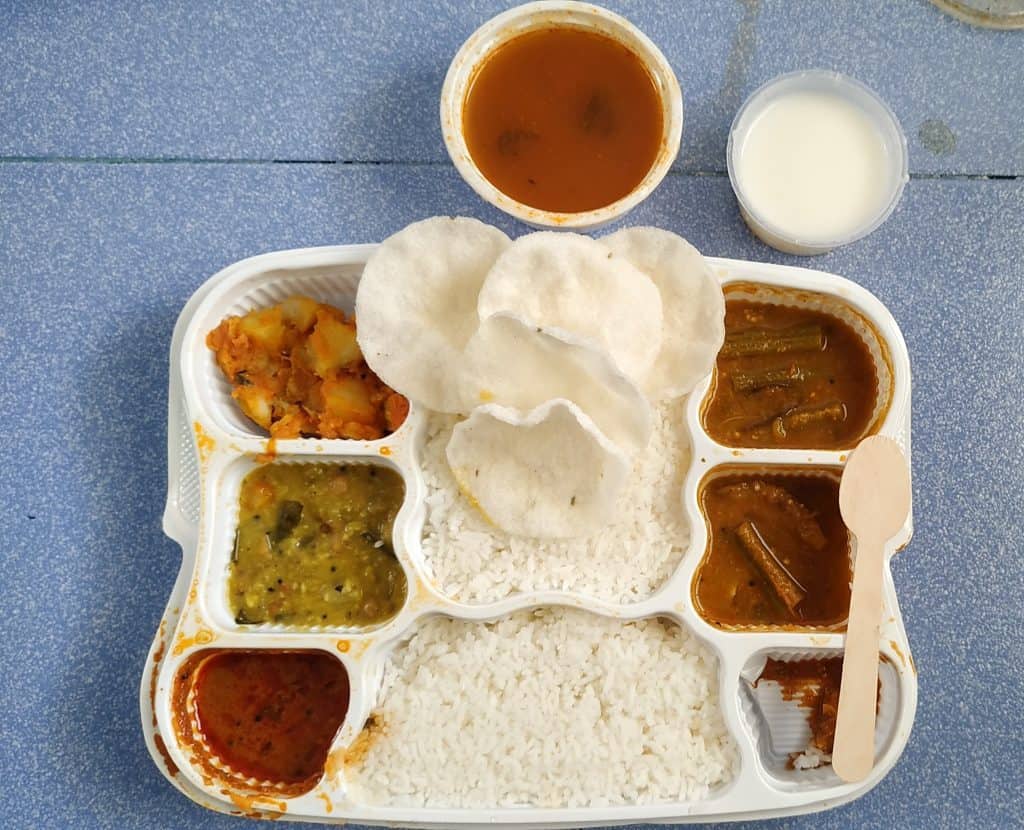With the country entering the fourth phase of lockdown in the COVID battle, relaxations on movement have been granted leading to more people entering states from within and outside the country. Tamil Nadu, too, has seen more people come in since relaxations were put in place. Accordingly, testing and quarantine rules have been revised for those entering the state, with certain exemptions.
What do you need to do if you have to come to Chennai now? Here’s a quick explainer:
How can you enter Tamil Nadu?
At present, Shramik trains for migrant workers are allowed entry into Chennai.
Air travel is restricted to those flights carrying repatriated passengers from foreign nations.
Inter-state travel in private vehicles is allowed for those who are stranded in other states, or wish to travel to Tamil Nadu for weddings or funerals.
Such travel is possible only by obtaining passes from the source and destination states. Those looking to obtain passes to return to Tamil Nadu must register at – https://tnepass.tnega.org/
A portal – https://nonresidenttamil.org/ – was launched for those wishing to return to Tamil Nadu from other states and countries to register themselves, for the government to get an idea of the number of individuals who are looking for an opportunity to return to the state. However, passes are NOT issued on this website.
States across the country have their own portals from where those seeking to return to Tamil Nadu must apply for a pass.
A single point e-pass system that has been adopted by 17 states can be used to obtain an inter-state travel pass, http://serviceonline.gov.in/epass/
Even after the procurement of e-pass, some states could stop the entry of individuals at their own discretion. Karnataka, for example, has banned entry from Maharashtra, Kerala, Tamil Nadu and Gujarat. Those looking to travel into Tamil Nadu by passing through Karnataka must obtain explicit permission to transit.
All those who are entering the state are stamped with indelible ink at the entry point, bearing date of entry.
What are the protocols in place for testing?
Travellers from abroad are subject to mandatory testing, regardless of whether they display any symptoms of COVID-19.
Inter-state travellers on Shramik trains and those in private vehicles must also undergo mandatory testing at different check points prior to their entry to Chennai (or whichever destination in the state they may be headed for).
What are the rules of quarantine for those returning to Tamil Nadu?
For travellers returning from abroad: If the mandatory test result is positive they will be sent to COVID-19 treatment hospitals. If the test result is negative, they will be under institutional or hotel quarantine for seven days. At the end of seven days, another test will be administered. If the results of this test are negative, they are free to head home, but must be under home quarantine for a further 14 days.
For those returning on Shramik trains or through personal vehicles from other states: Those testing positive are sent to hospitals treating patients of COVID-19. If the returnees test negative, but are visiting the state from COVID-19 hotspots such as Maharashtra, Delhi and Gujarat, they must be placed under institutional quarantine for seven days. Another test is conducted at the end of seven days. If the results are negative, they are free to head home and continue to quarantine themselves at home for a further 7 days.
Those returning from non-hotspot states can just go into home quarantine for 14 days.
If any returnee is unable to quarantine effectively at home, institutional quarantine facilities are available to them.



What are the protocols for inter-district travellers?
Inter-district travel within the state is still restricted and only available for medical emergencies, death and funerals upon procurement of e-pass. E-pass can be obtained by applying at – https://tnepass.tnega.org
Those who have travelled between districts are advised to home quarantine themselves for 14 days upon completion of their journey. Testing is only done for symptomatic individuals.
Exemptions to quarantine rules
Certain categories of individuals are exempt from mandatory quarantine rules upon their entry into the state, contingent on their undertaking that they will immediately check into a hospital if their test results are positive for COVID-19. They are:
- Terminally ill persons
- Individuals requiring immediate medical attention
- Persons due to attend a funeral or rituals associated with a funeral
- Pregnant women
- Persons above 75 years of age
Those who state a medical emergency as the reason will be subject to examination and clearance by a medical team.
Charges for quarantine facilities
Various options for quarantine are available to those individuals returning to the state depending on capacity and availability.
Institutional quarantine at free of cost is available for all. The facilities are set-up at government run shelters, wedding halls and schools. Temporary facilities have been made at locations such as the Chennai Trade Center. These locations are currently hosting close to 35,000 individuals.

Those wishing to stay at hotels during the quarantine period may do so by paying anywhere between Rs 500 to Rs 2500 per day inclusive of food and taxes. Chennai Corporation has tied up with around 80 lodges, mansions and two and three star hotels for this purpose. Strict restrictions are placed on movement of those under quarantine in these locations.